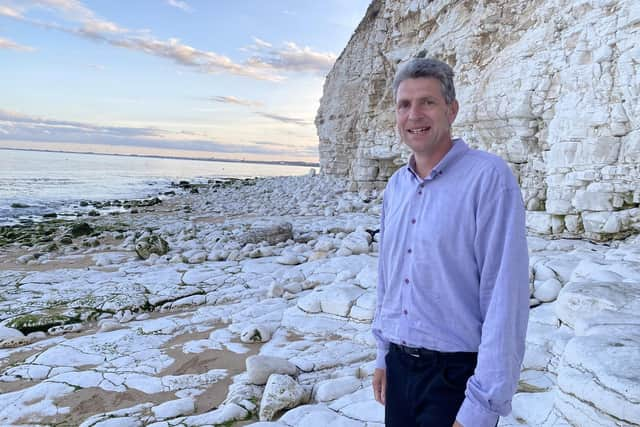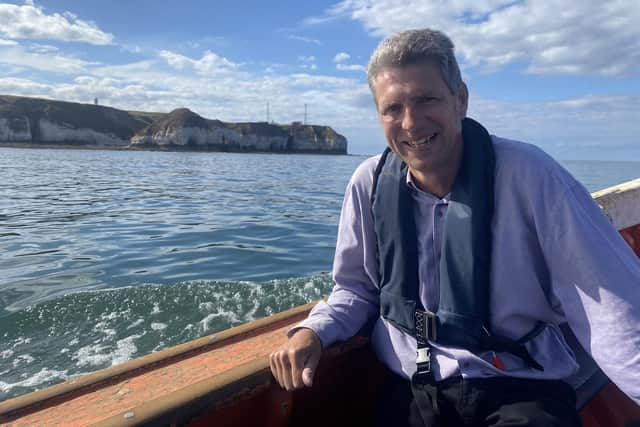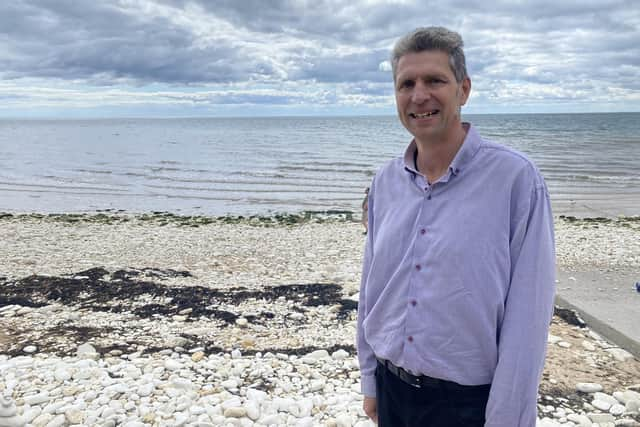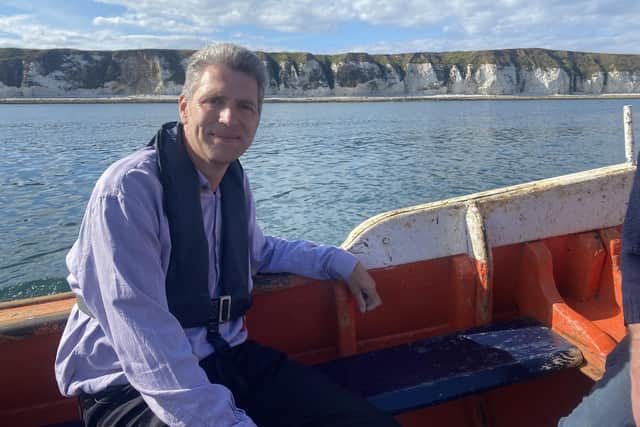BBC programme highlights unique nature of Flamborough village
Robinson is also the presenter of the BBC series Villages by the Sea, which looks at how villages have changed over the centuries due to their coastal location and the very ground they are built on. It returns to our screens this week, with series three.
“The premise of the series is to show people a different side of these beautiful villages that they visit for rest and relaxation,” says Robinson. “Everyone likes to be beside the sea but if you delve a little bit deeper you find that there is a whole history - which is often dramatic and traumatic - that have led to these places ending up the way they are today. They have many things in common but they are also all individual with different stories.”
Advertisement
Hide AdAdvertisement
Hide AdThe village of Flamborough on Yorkshire’s east coast is one of the villages featured in the series and Robinson says he personally learnt a lot about the place.


“We have featured a number of Yorkshire villages over the last two series and there is something so passionate about them all - the feeling you get from Yorkshire is that they really don’t need the rest of the country, they would happily go it alone and you definitely get that feeling in Flamborough.”
Robinson has studied the history of villages and explored them through archaeological excavation over many years. His book 'England's Villages: An Extraordinary Journey Through Time', includes many Yorkshire villages.
“I had been to Flamborough before but I had never really had the time to talk to the people to learn their stories and anecdotes and see how the place has developed over time,” he says.
Advertisement
Hide AdAdvertisement
Hide Ad“Flamboorugh’s unique landscape above chalk cliffs has meant they have had to become self-sufficient.”


But he says it isn’t just the natural landscape that has made the Flamborough folk so resilient and self-sufficient, man has had a hand in it too.
“About 4,000 years ago the community decided that this village that juts out into the North Sea was so special that they would effectively cut it off from the rest of the country by making a five metre deep, two-and-a-half-mile long man-made dyke, re-enforced and fortified with local chalk.
“It must have taken the entire community an incredible amount of time and hard work to build such an extraordinary thing - it is massive and has clearly been re-enforced over the centuries.
Advertisement
Hide AdAdvertisement
Hide Ad“It is a clear message to everyone that if we want to keep you out we can keep you out.” Robinson thinks the FLamborough villager’s desire to keep people out might also come down to them wanting to protect their natural resources.


“Flint was incredibly important in prehistoric times as you can make tools with it and there is an abundance in Flamborough and I think they were trying to protect it from people just coming and taking it - they were creating their own little kingdom.”
He says this independence and self-sufficiency can be seen in how the village itself develops.
“By the 1800s Flamborough is more like a small town than a village. There’s a variety of shops, nbutcherse, public houses - they have everything they need to be totally self-sufficient and really this continues to this day,” says Robinson. “And it really shapes the character of the people who live there. Fishing is the main industry and that is a hard and often tragic life, but this just makes them even more resilient.”
Advertisement
Hide AdAdvertisement
Hide AdRobinson discovers, when he visits two of the villages most prominent structures, that not only flint, but chalk, has played a large part in the history of Flamborough.


Built from chalk in the 1350s, Flamborough castle is now in ruins, but once belonged to an influential local family called the Constables. Using modern technology, Robinson builds up a picture of what their vast, fortified estate might once have looked like.
Local historian and archaeologist, Andrew Jones, shows him around the village’s most imposing surviving chalk building. Constructed in 1674 and standing 87 feet tall, Flamborough Tower was built with the purpose of improving ship to shore navigation but would ultimately be used by local law enforcers in a bid to prevent smuggling.
The programme also sees him take to the North Sea with local fisherman Richard Emmerson to see for himself some of the secret nooks and crannies that smugglers would have used to hide their valuable contraband, in days gone by.
Advertisement
Hide AdAdvertisement
Hide Ad“For the first time in this series I arrive by boat so you get a unique insight into the landscape and location of a place from the sea - ultimately the sea is what these places are about. Flamborough has two landing places – north landing and south landing – and they are both very different in character to each other. Coming round the headland can be treacherous – people have got it wrong and the community has had to deal with many tragedies over the years.”
Robinson hopes the programme will encourage more people to visit the village which he says isn’t as well known nationally as some of the other places featured in the series.
"I think people will be surprised as just how interesting it is. And it’s not just its history, it felt to be thriving to me. There are a few second homes but you get the feeling that the community is still full of families that have been there for generations. It feels like a really strong community. It’s a village that’s really looking after itself. It is enjoyed by visitors and holidaymakers, but also by the people that live there – everyone I spoke to loved living there.”
Villages by the Sea (Flamborough) is due to air on BBC Two at 7pm on Friday 23 September